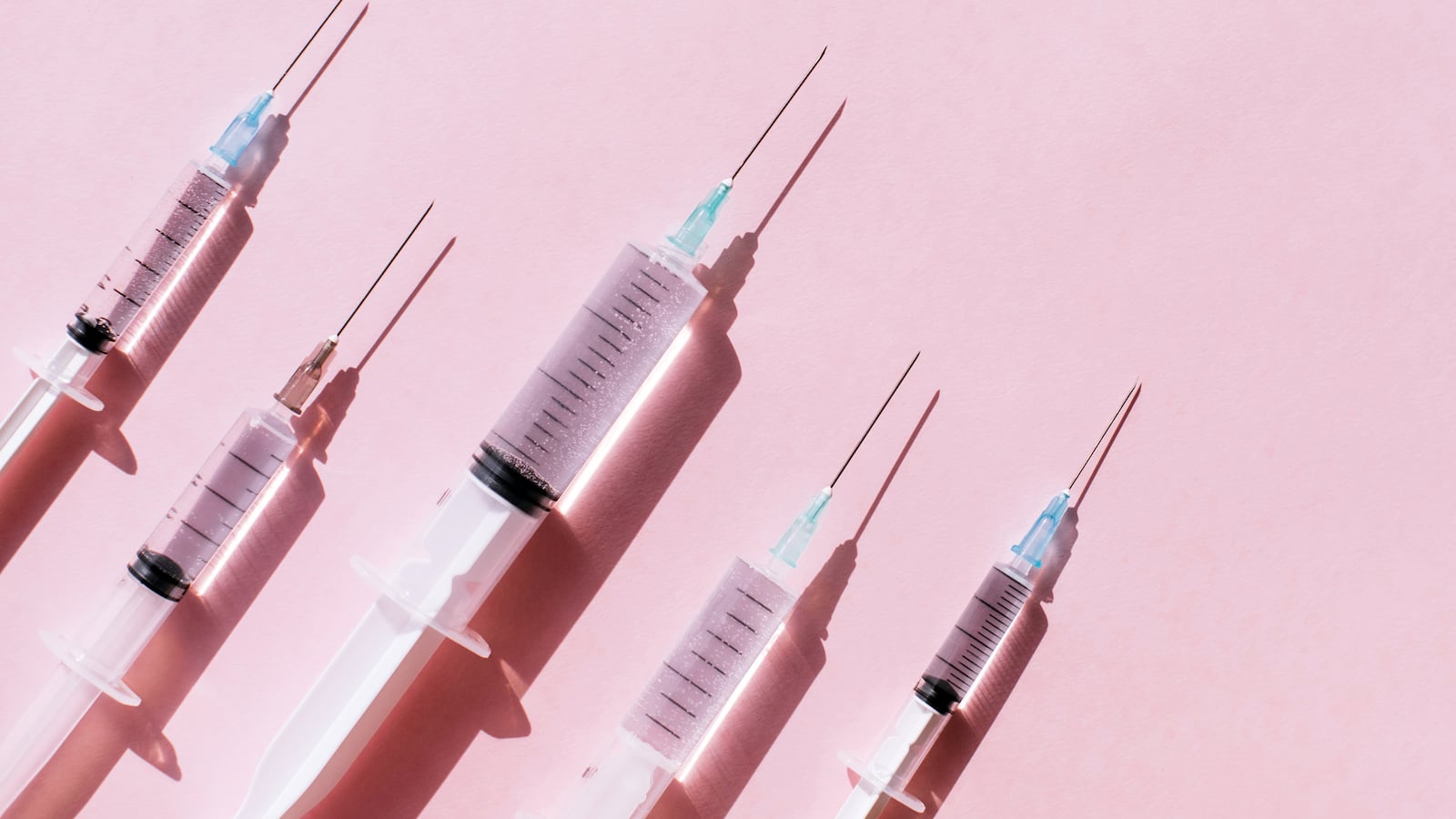On Dec. 31, 2019, the first case of the coronavirus was recorded, a global pandemic was en route and emerging biotechnology would be our salvation—so long as we embraced it.
The following day, anti-biotechnology activists saw their biggest American legislative win go into effect: federal labeling for genetically modified organisms, or GMOs.
Those rules, pushed forward by political progressives, were supposedly the answer to health concerns stoked by a health disinformation campaign, amplified by the media and seized upon by opportunistic lawmakers pandering to populist fears about “frankenfoods” in the name of “freedom of choice.” Sound familiar?
Weeks later, Moderna had developed a coronavirus vaccine prototype via a new method: mRNA (the “m” stands for “messenger”), a previously untried approach. Trials began in February, the same month that Oxford announced they, too, had a vaccine in the works with AstraZeneca, with that one using a genetically modified virus.
Where emerging biotechnologies have often been treated as harbingers of a looming dystopia, these radical new scientific innovations now looked like humanity’s best hopes of reaching a better tomorrow—the popular forces that stoked fears of biotechnology would now have to assuage them. Biotechnophobia would quickly become politically incorrect, leading to a swift change in tone by some.
Where the Pope had once—in a 2015 encyclical—played up concerns that biotechnology could wreak havoc on the environment, he now implored people to get the vaccine, distancing the Vatican from similar biotech catastrophizing coming from the likes of Cardinal Raymond Berk.
Other public figures adjusted their rhetoric over the past year. Prince Charles, who said in 2008 that GMOs “will be guaranteed to cause the biggest disaster environmentally of all time,” publicly got the vaccine and encouraged others to do the same. Oprah—who famously platformed anti-vaxxed Jenny McCarthy—did the same. Even Bill Maher, notorious for espousing anti-GMO and anti-vaxx views, announced he got the jab, though he stopped short of walking back any of his past rhetoric.
Chipotle, which swore off of GMOs, offered free burritos to customers who get the jab. McDonald’s gave discounts on meals—that would have contained fries with reduced cancer risk had they not eschewed GM potatoes in the name of public perception years earlier.
The press did a similar about-face without acknowledging their own flirtations with reactionary technophobia. When COVID conspiracy theorists set 5G masts alight across the UK, The Guardian published a rundown of How False Health Claims About 5G Spread Into the Mainstream, blaming social networks, without mentioning it had platformed anti-5G activists in an earlier piece titled The Inconvenient Truth About Cancer and Mobile Phones. The BBC did the same, failing to acknowledge its old reports with titles like “Immune System Attacked by Mobile Phones” were commonly shared by activists online.
A similar dynamic played out with the new vaccines. Shoddy old mainstream reporting was used by the conspiracists as a proverbial spike protein to get past people’s information immune systems and stoke fears about biotechnology. Reports on Wikileaks cables revealing pro-GMO lobbying efforts by the US—focused on the EU and Catholic Church—took a conspiratorial tone, one easily framed as proof of a corporate deep state.
When a dubious French GMO safety study went viral in 2012 thanks to pictures of tumor-ridden rats, the press covered it breathlessly and amplified its authors’ claims that regulators were “endangering” public health. That was priceless propaganda for those looking to sow distrust about vaccines that contain GMOs. The study was retracted in 2014.
Later that year, an opaque Russian organization—now considered part of a Kremlin propaganda effort—announced it would reproduce the study in what it trumpeted as the “world’s largest international study” of GMO safety. The Guardian and Reuters covered the announcement uncritically, but the study never materialized.
Now the media would blame biotech health fears squarely on social networks, Mark Zuckerberg, Trump, the Post-Truth age—without any self-reflection. Consequently they would fall back on old habits, making the same mistake and giving anti-vaxxers even more ammunition.
In recent days The New York Times covered a shelved Facebook report on vaccine disinformation in Q1 2021. It noted the popularity of right-wing news outlets while highlighting the most clicked story was titled “‘Healthy’ Doctor Died Two Weeks After Getting a COVID-19 Vaccine” (viewed 54 million times.) Main paragraphs later, it revealed the link’s publisher: The Chicago Tribune, a mainstream media outlet. Even worse, the Times would omit that it covered the same story with an equally loaded headline.
In this pandemic anti-vaxxers didn’t need to discredit 200 years of vaccine efficacy, or explain away scientific consensus. They just needed to sow doubt about emerging biotechnologies, a job that had already been largely done for them by the press and politicians. Biotechnophobia was already endemic.
A 2020 Pew survey showed 48 percent of adults globally, and about the same share of Americans, believed GMOs were unsafe to ingest. Half of the global population had been conditioned to think emerging biotechnology products are a threat to health—with no evidence. It is hard to imagine this popular prejudice has not played a meaningful role in vaccine hesitancy.
Why would people reluctant to ingest a genetically engineered vegetable not also be more reluctant to inject a genetically engineered virus, ? Why would those wary of decades-old biotechnology embrace months old methods?
It’s no coincidence that Japan, where health authorities that pandered to biotechnophobia in the ’90s with bans on GMO crops and measles, mumps and rubella vaccines, now has one of the lowest vaccine trust rates in the world.
The European Union has been similarly haunted by its early and aggressive attacks on GMOs, shaped in large part by the father of the anti-biotech movement, Jeremy Rifkin, who has served as a senior adviser to three EU presidents. In June of 2020, Brussels had to place a moratorium on erroneous GMO regulations that were hampering vaccine development, an ironic juxtaposition to its five-year moratorium on GM crops between 1999 and 2004.
After that moratorium ended, the world’s most restrictive biotech regulations were brought in and a “safeguard clause” was added allowing member states to prohibit GM crops if they were deemed “a risk to human health or the environment.” Over half of the 28 EU member states chose to ban all GM crops, along with most of the UK (Northern Ireland, Scotland and Wales.) These same authorities would now need to persuade people to embrace vaccines made with GMOs and other emerging biotechnology methods.
In an attempt to manage the distrust it had helped foster, the EU initially refused to waive liability for vaccine manufacturers for any adverse side effects, slowing down the vaccine rollout. Vladimir Putin then passive-aggressively offered to shoulder legal responsibility if the EU adopted Russia’s “much safer” vaccine, with Germany’s Angela Merkel and France’s Emmanuel Macron even discussing that offer with him.
Just as the vaccine rollout began to pick up pace, biotechnophobia reared its head. Norway paused its rollout of the Oxford-AstraZeneca vaccine after a handful of reports of blood clotting—without proof of causation. Bulgaria, Denmark and the Netherlands followed. So did Italy, France and Germany. Global headlines ensued, denting COVID vaccine trust not just in Europe but around the globe and likely slowing FDA approval of the Oxford-AstraZeneca vaccine
In France, where the percentage of the population with an unfavourable view of vaccinations shot up from 8.5 percent in 2000 to 38.2 percent in 2009 (with newer vaccines the least trusted), the proportion of people concerned about taking the Oxford-AstraZeneca vaccine spiked from 22 percent to over 50 percent after the nation paused its rollout in what was supposed a confidence-building measure that went terribly wrong. Similar drops in trust were seen in Germany, Spain and Italy.
In the U.S., where President Biden said Facebook was “killing people” with disinformation before walking that claim back, vaccine hesitancy has been a more partisan issue, with Republicans considerably less eager to get jabbed. Even so, research has shown 23 percent of Democrats were vaccine hesitant or against the vaccine completely, a meaningful number when 75-80 percent of Americans need to be vaccinated to get the pandemic under control.
Moreover fears of emerging biotech stoked by progressives in the past, bled across the political divide. A 2016 Pew survey showed that 39 percent of Republicans believed GMOs were bad for their health, a fact that no doubt contributed to concerns that mRNA vaccines could “turn you into a GMO” and modify your DNA. Another, anecdotal, example was featured in a New York Times report this week that quoted a woman crediting the movie I am Legend for inspiring her hesitancy to get vaccinated. The piece noted the movie was about a genetically engineered virus, not a vaccine—failing to acknowledge that some COVID vaccines do in fact contain a genetically engineered virus.
The truth is, one doesn’t need to doubt scientific consensus to be COVID-vaccine hesitant. You just need to treat emerging biotechnology the way you were conditioned to by the media and health authorities over the previous three decades.
When Biden and Eurocrats blame vaccine hesitancy on Facebook, they ignore their past role in legitimising biotechnophia. Parts of the progressive establishment painted themselves into a corner by abandoning truly progressive values and pandering to populist ignorance when it was politically convenient and ideologically satisfying.
How are progressives supposed to persuade the vaccine hesitant, when their past actions contradict their present words? When Obama calls on African Americans to embrace emerging biotech products, anti-vaxxers can point to his passage of GMO labeling laws in 2015, fulfilling a promise he made in 2007. When Prince Charles encourages people to get the vaccine in the UK, anti-vaxxers can point to his prior warnings of biotech catastrophe. When Japanese health authorities tell its citizens to get vaccinated, anti-vaxxers cite its ban on MMR vaccines and GM crops. When Bernie Sanders tells his followers to get jabs, anti-vaxxers can point to the fact he voted against the GMO labeling bill, not because he opposed pandering to bogus health fears but because it was not harsh enough for him.
Some have forgotten that to be progressive isn’t just to pursue social progress and fight xenophobia, it is to pursue technological progress and fight technophobia. To be pro-science isn’t just to be pro-scientific consensus, it is to be pro-scientific progress. For the sake of progress, we must remember.


